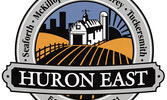Huron East budget passes with 10 per cent levy increase
BY SHAWN LOUGHLIN
On April 16, Huron East Council passed its 2024 budget, which includes a 4.2 per cent capital levy increase for a total municipal levy increase of just over 10 per cent - a decrease from the original proposed increase of 11.8 per cent.
Chief Administrative Officer Brad McRoberts presented the final draft of the budget to both council and the public at council’s April 16 meeting, stating that, as a result of this year’s budget, the residential tax rate will increase by 7.66 per cent.
He told council that, when compared to neighbouring municipalities, such as Huron County’s other eight lower-tier municipalities and nearby Huron-Kinloss, North Perth and West Perth, Huron East is in the bottom half for its municipal tax rate, in the lower end of where it should be based on the services provided by Huron East. This year, Huron East sits eighth on that list, with McRoberts estimating that, based on the services provided in the municipality, Huron East could reasonably rank as high as fifth and still be within a reasonable range.
Fifty-one per cent of the property tax dollars being collected in Huron East will be used for municipal purposes, while 36 per cent will go to the county and the remaining 13 per cent will go to the local school boards. When broken down by services, 37 per cent of municipal tax dollars go to transportation in the Huron East budget, followed by 16 per cent for community services, 15 per cent for policing, 13 per cent for administration, 13 per cent for fire, three per cent for the local conservation authorities, two per cent each for economic development and council, one per cent for waste management and the remaining percentage of less than one per cent for other expenses.
McRoberts also provided an extensive list of amenities afforded to residents in return for their tax dollars, such access to three recreation centres (two arenas and one indoor pool), three fire stations, maintenance of nearly 450 kilometres of roads and over 115 bridges and culverts, waste collection, policing, stormwater management and much more. He also made note of what is not paid for by municipal taxes, such as water and wastewater services, which are paid for by users of the systems, building services, which are funded through building permit fees, and the Seaforth Business Improvement Area, which is fully funded by the organization’s members within that designated area.
He also noted a number of items originally proposed for the 2024 budget that will be deferred until next year, such as all public works equipment purchases (with the exception of a new rotary mower) and a number of recreation projects. Also, per the municipality’s asset management plan, which council passed in 2022, scheduled capital levy increases for the next four years will be 4.8 per cent in 2025, followed by 4.4 per cent in 2026, 4.2 per cent in 2027 and 2.4 per cent in 2028.
Cost of living increases have continued to impact Huron East’s budget, McRoberts said, in addition to the municipality’s recent compensation review, the implementation of its new succession plan, insurance and health and benefits increases and ever-decreasing provincial and federal funding. He also noted that historical deficits for the Brussels Cemetery, Huron East Fire Service and the Brussels, Morris and Grey and Seaforth and District Community Centres will continue this year, despite an original recommendation to the contrary. The deficits will remain in place for the year due to operating cost pressures, McRoberts said in his report.
Councillors didn’t have much to say on the final draft of the budget, which was largely unchanged from the previous draft. However, Deputy-Mayor Alvin McLellan asked about freezing councillor honorariums and wages for the rest of the term, given the limited finances available in this year’s budget.
Staff reminded McLellan that the increases for councillors, as well as citizen committee members, had already been approved by council. McLellan asked for a report on council wages, but staff said that report had essentially been completed late last year for the municipal compensation review and that information could be brought back to council for further discussion.
Councillor John Steffler also asked about reserve levels, which were included in the report. He said that, if the municipality were to deplete that money by 10 or 15 per cent, it would eat into the proposed tax rate increase. However, McRoberts cautioned against that, saying that the vast majority of the municipality’s reserves are dedicated to one project or sector and that unrestricted reserves were very low. He also added that, with how prices are going to complete projects, taking out 10 per cent “today” would mean contributing 20 per cent “tomorrow” to replace it.
Council passed the budget without any changes. A bylaw to establish the budget and tax rates for the year was also passed later in the meeting.


